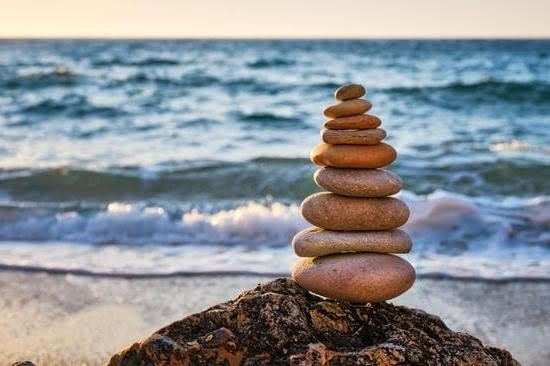Introduction
Feng Shui, pronounced “fung shwee”, is a Chinese philosophical practice involving the arrangement of one’s environment in order to promote positive energy and luck. It seeks to create a harmonious home and environment that is intended to facilitate lasting change and prosperity. Feng shui is based on the idea that all objects within an environment and their placements are connected with the cosmic flow of energy (known as Qi). In accordance with this belief, a person’s living space should be positioned and decorated so that Qi (energy) can easily flow; this way, bad energy within a home can more easily escape while good energy can enter and promote joy, success, and health.
The Eastern approach to feng shui differs drastically from Western practices in ideology. Unlike many modern practices in Europe and America that focus heavily on physical aesthetics by seeing home décor as only decorative elements for individualistic styling purposes, Eastern practitioners value restructuring the entire home space for several functions: achieving balance between people living within it and promoting positive standards essential for spiritual health. Aesthetics are still taken into consideration but less of an importance than bringing good “face””like good reputations or honorability”to the household. Additionally, five element theory plays an important part in traditional eastern practice which cannot be overlooked: wood, fire, earth, metal and water ” nature itself has special significance for Chinese tradition such as gardening or arranging flowers into groups with auspicious numbers like 8. By carefully considering every aspect of one’s external environment along with personal goals when designing each living space a strong opportunity exists for restoring luck towards betterment of everyone who lives there.
Uncovering the Origins of Feng Shui
Feng Shui, literally meaning “wind and water”, is an ancient Chinese practice believed to use the laws of heaven and earth to help people live in harmony with their environment. It has been around for thousands of years, with roots in both Taoism and Confucianism. Legends and folklore have attributed miraculous benefits to practicing Feng Shui, though many modern interpretations are seen differently than their traditional counterparts.
Feng Shui aims to balance our environment by understanding the invisible forces of nature and how they interact with our homes and work spaces. With this methodologies, practitioners use various tools such as energy mapping (‘Ba Zi’), Qi flows (fluxes) analysis, directionology (facing positions), color therapy and environmental analysis to assess a space’s Feng Shui harmony levels. Implementing these changes successfully can bring positive outcomes such as physical health, emotional balance & spiritual clarity. There are countless examples showing how following the principles of Feng Shui has helped many people improve their physical lives manifest success in business endeavors too.
Feng Shui true stories have been recorded for centuries. These tales often focus on a divine being’s advice concerning construction techniques or where graves should be located; other stories involving famous courtiers who ascribe their success to Feng Shui practices abound throughout Asian cultures. In addition, there have been numerous reports from around the world by those who believe that having a harmonized environment helped them achieve great wealth or propelled them into social prominence. To this day, there are still skeptics who question whether certain aspects of Feng Shui are useful or just superstitious nonsense; however many believe that when applied properly”and with good intentions”it can bring amazing results into one’s life.
Experiencing Feng Shui
Feng Shui true stories come in diverse forms. One woman used it to redesign her home in order to bring balance and prosperity into her life. She rearranged the furniture according to Feng Shui principles, and she even changed her bedroom layout so that she could get more restful sleep. Another workplace improved their office operations by introducing Feng Shui principles; as a result, their customer satisfaction ratings went up and their employees felt more productive and better about their jobs. Additionally, an individual using Feng Shui for spiritual guidance found clarity in life by adhering to the principles of natural harmony. Examples are numerous of individuals who have implemented Feng Shui practices, whether for personal or practical reasons, with great success.
Superstitions and Taboos
In some cultures, it is believed that walking in a single file line around one’s home will bring bad luck. This stems from the fact that most ancestors were buried in long graves, built for multiple family members to be interred side by side. People believe that walking around their homes in this fashion could awaken these relatives, potentially putting them into a trance state or disquieting them. Additionally, it is widely believed by the Chinese Buddhist and Taoist traditions that since it takes two sets of feet to walk an entire circuit of the home, whoever walks alone would meet with misfortune or evil spirits.
Other prohibitions include avoiding sharp edges and pointed roof tops, known as “dragon fangs” ” which are said to create energy spikes and disturb harmony within the home. Pointed corners on walls should also be avoided, especially in corridors to avoid creating a “poison arrow” effect which can concentrate negative energy at the point of contact with another wall or space. Bright colors such as red are looked upon unfavorably too as they indicate passion and anger while dark blues signify worry and sadness. It is also important to note that clutter can often create energy build-up so regular de-cluttering sessions should be held to reduce any negative Chi (energy).
Testimonials
Feng shui has enabled countless people to experience a life-changing transformation in their home, work and personal spaces. One such story is that of Madeline S., who had been facing a difficult period in her life with persistent stress and difficulty sleeping. After months of frustration, she decided to give Feng Shui a try to see if it could help her find balance and peace. Madeline implemented several key feng shui principles into her home, such as clearing clutter, introducing plants and decorating with gentle colors.
Right away she noticed a positive shift in her energy and soon thereafter saw drastic changes in her attitude and health. She felt more balanced throughout the day, experienced better sleep at night and saw an increase in productivity at work due to this newfound sense of clarity that feng shui provided. Several months later, Madeline took before and after photos of her living space – the difference was remarkable! Her home was now filled with vibrant colors that infused energy into the room making it feel alive, comfortable and inviting for all who enter.
Madeline’s success story serves as a great testament to the power of feng shui in bringing about positive transformations into one’s environment. It proves that with patience, dedication and discipline – anyone can use feng shui to create harmony, balance out their energies and make profound shifts in their lives!
Traditional Methods
Feng shui true stories involve people around the world tapping into the ancient practice of Chinese geomancy to help improve their lives. Traditional feng shui methods, which are still widely practiced today, emphasize the importance of energy flow and positioning elements in a home or office. These methods focus not only on the arrangement of furniture according to specific principles, but also on what direction we should face when doing certain activities.
Sacred geometry is an integral part of traditional feng shui practice. This involves using symbols such as circles, stars and hexagrams to bring harmony to the environment while promoting natural energy flow. Each symbol is chosen based on where it will be placed and what it represents in terms of balance and protection.
In terms of energy flow, feng shui expert believe that certain energies can have a positive impact on our lives when used correctly. It is believed that proper placement and skillful direction selection can draw physical benefits such as good health, financial prosperity, peaceful relationships and spiritual fulfillment. Feng shui true stories show how those who have implemented traditional feng shui methods have seen tangible results in their lives after making changes to their interior spaces.
Modern Updates
People can now use digitally-enabled tools and environmental controls to enhance their Feng Shui lifestyle. Smart home technology, such as Amazon Echo or Google Home, can allow people to seamlessly control environment features like temperature, lighting, and air quality from a centralized hub. This eliminates cluttered physical remotes and provides easy access to certain items, such as turning on the air conditioning from another room. Energy-efficient appliances are also a great choice for those looking to reduce their energy consumption and save on electricity costs. LED lighting fixtures in particular are popular Feng Shui options due to their low power usage. In addition, timers and dimmers can also be installed to give more control over energy usage. Finally, furniture items made out of sustainable materials are beneficial for both design purposes and protecting the planet’s resources. All of these components combined together can provide a more balanced atmosphere that brings peace and harmony into one’s life.
Sustainable Practices
With the rise of “green” awareness and sustainable practices, many homeowners have applied these principles to the practice of Feng Shui as well. Eco-friendly methods to maintain long-term Feng Shui efforts include utilizing natural materials when possible in home furnishings and decorations, such as bamboo, cotton-based textiles, organic dyes for fabrics and carpets, and wooden furniture free of harmful chemicals.
Incorporating features like green plants in the home can help purify air quality, while artwork depicting calming scenes or objects can provide a soothing energy. Replacing conventional lightbulbs with eco-friendly options can help reduce energy consumption while still allowing the desired level of brightness to promote positive chi flow. Hanging sheer curtains rather than heavy ones can allow more natural light into rooms, which is also said to enhance health and vitality as well good fortune. Preferring organic cleaning products is another way to use sustainable practices while managing Feng Shui practices in the home.
Conclusion
Feng Shui often teaches us about how to create balance and peaceful harmony in our lives. It shows us how designing the environment around us to be well thought-out, organized, and uplifting can bring joy and abundance into our lives. With Feng Shui, we learn how it affects our personal energy levels and how using certain colors, decorations, shapes, proportions, or other design elements can make a positive difference. We also learn that the placement of furnishings or objects in specific areas of a living space or work place can have a huge impact on the energy dynamics of that space as well as our own moods and emotions. By being mindful of the environment surrounding ourselves and its affecting our senses, we can work to craft an atmosphere that is both attractive aesthetically and beneficial to our wellbeing. As we become more conscious of Feng Shui’s effects within our own lives, it becomes easier to understand why it is so beneficial for anyone looking for better design in their living or working spaces.

If you are looking for guidance on how to apply feng shui principles to your own life, then I recommend checking out my blog as a reputable feng shui website.





